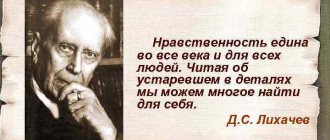Hegel Quotes and Sayings
Prudence presupposes that one's own benefit is not considered the goal of moral behavior, although it may be its consequence.
Prudence consists in not destroying the goodwill of others and maintaining it for its own sake.
Marriage is legal love; with such a definition, everything that is transitory, capricious and subjective in it is excluded from the latter.
To be one's own master and slave seems an advantage compared with the state in which one is the slave of another.
At first, maternal education is most important, for morality must be instilled in the child as a feeling.
Inspiration is nothing more than the fact that someone who is in a state of inspiration is completely absorbed in the subject, goes completely into it and does not calm down until he finds a completely appropriate artistic form and gives it the final stamp, brings it to perfection.
Politeness is a sign of favor and readiness to serve, especially in relation to those with whom we do not yet have close relationships of acquaintance or friendship.
External actions are no different from internal ones. In an evil deed, the intention, in essence, is also evil, and not good.
A will that decides nothing is not a real will: a characterless person never comes to a decision.
Education has the goal of making a person an independent being, i.e. a being with free will.
For one who is not free himself, neither are others.
Virtue is something universal, required of all people, and not something innate, but something produced in the individual by his own activity.
Virtue has become an art that should and can be learned, but the fate of which turned out to be strange: while the other arts were improved and one generation learned from another, morality alone did not increase noticeably, and it turns out that here everyone is forced to learn anew and cannot use the experience of previous generations.
Friendship is based on the similarity of characters and interests in a common joint endeavor, and not on the pleasure that you receive from the personality of the other.
A bad person follows his inclinations and because of them forgets his duties. A bad person would consider it necessary to fulfill his duties, but he does not have the will to control his inclinations and habits.
If the will clings only to trifles, to something meaningless, then it turns into stubbornness. This latter has the form of character, but not its content.
Evil is nothing more than a discrepancy between being and ought.
If the truth is told only to insist on one’s own opinion, without further success, then this is at least unnecessary, for the truth is needed not only for a matter to be spoken about, but also for it to be accomplished.
If the facts contradict my theory, so much the worse for the facts.
If a person makes something vain his goal, i.e. insignificant, insignificant, then here lies not an interest in the matter, but an interest in oneself... Such, for example, is moral vanity, when a person believes in his superiority in his actions and generally shows more interest in himself than in the matter.
The ideal is every reality in its highest truth.
Of all generally immoral relationships, treating children as slaves is the most immoral.
Of all duties towards others, the first is truthfulness in words and deeds.
Art has an unusually effective role in realizing the purpose of reason, for it prepares the ground for morality, so that when it comes, it already finds half the work done, namely, liberation from the bonds of sensuality.
The truth of a means lies in its adequacy to the end.
True self-benefit is achieved only by moral behavior.
True politeness must be considered precisely as a duty, for we should generally have goodwill towards others.
Each person must... be required to show character. A person with character impresses others because they know who they are dealing with in him.
To morality: the highest thing in it is to ensure that the guilt and suffering of this heart are buried in itself and the heart becomes the grave of the heart.
Character refers, first of all, to the formal side of energy with which a person, without allowing himself to be led astray from the once accepted path, pursues his goals and interests, maintaining agreement with himself in all his actions.
Each work of art belongs to its time, its people, its environment.
Everyone wants to be better than the world around them and considers themselves better than it. The one who is truly better only expresses this world better than others.
When a person commits this or that moral act, then he is not yet virtuous; he is virtuous only if this mode of behavior is a permanent feature of his character.
A moral principle primarily refers to a state of mind or intention. But here it is also important that not only the intention, but also the action be good.
We must want something great, but we must also be able to do great things; otherwise it is an insignificant desire. The laurels of desire alone are dry leaves that have never grown green.
Just as it is necessary that willpower be possessed by one who is persistent in achieving a reasonable goal, just as obstinate is disgusting.
It is not what is that causes us to feel impatience and suffering, but what it is not as it should be.
It is ignoble not to tell the truth when it is appropriate to tell it, for this humiliates both oneself and others. However, one should also not tell the truth if one does not have a calling or right to do so.
The have-not, as such, is not equal to the have-have. Consequently, it depends on his will whether he wants to appear as a poor person. He will only want this if he is convinced that I will consider him an equal.
Nothing great in the world is accomplished without passion.
Moral is obedience in freedom.
Morality must appear in the form of beauty.
Morality is the reason of the will.
A moral person recognizes the content of his activity as something necessary... and this causes so little damage to his freedom that the latter, on the contrary, only thanks to this consciousness becomes real and meaningful freedom, in contrast to arbitrariness, which is still meaningless and only possible freedom.
A person’s responsibilities are divided into four types: responsibilities to himself, to his family, to the state and to other people in general.
One of the main definitions of the principle of honor is that no one should, through his actions, give anyone an advantage over himself.
The answer to the questions that philosophy leaves unanswered is that they must be posed differently.
To the pedantic moralist it may be said that conscience is the moral lamp that illuminates the good path; but when they turn to a bad one, they break it.
The first necessary relationship an individual enters into with others is the family relationship. These relationships, it is true, also have a legal side, but it is subordinated to the moral side, the principle of love and trust.
In relation to your friends you need to be as little burdensome as possible. The most delicate thing is not to demand any favors from your friends.
Behavior consistent with the law, and moreover with a moral frame of mind, must be achieved first of all, and only then can moral behavior come into being, as such, in which there is no legal prescription.
True compassion is empathy for the moral justification of the sufferer.
Genuine immortal works of art remain accessible and bring pleasure to all times and peoples.
Help should not be provided against the will of the person being helped.
The truth is spoken at the right place and time, when it serves the implementation of the matter.
The law leaves complete freedom to one’s mentality. Morality concerns the state of mind and requires that an action be performed out of respect for duty. Consequently, a course of action that corresponds to the law is moral if it is determined by respect for the law.
In relation to morality, the only true words of the ancient sages are: to be moral means to live according to the morals of your country.
Let each person, before making demands on others, looking for the cause of evil outside, begin by weighing his position, his rights and, having discovered injustice in his possession, direct efforts to equalize himself in rights with others.
Reason can be formed without a heart, and a heart without reason; there are one-sided reckless hearts and heartless minds.
Speech is an amazingly powerful tool, but it takes a lot of intelligence to use it.
The most serious need is the need to know the truth.
A free person is not envious, but willingly recognizes the great and sublime and rejoices that it exists.
The connection between two persons of different sexes, called marriage, is not just a natural, animal union and not just a civil contract, but first of all a moral union that arises on the basis of mutual love and trust and turns the spouses into one person.
Minerva's owl flies out only at dusk.
Conscience, unlike laws, has no rights in the state; after all, if a person appeals to his conscience, then one may have one conscience, and another may have another. For conscience to be right, it is necessary that what it recognizes as right should be so objectively.
Shame is the beginning of anger against what should not exist.
Shame is a person’s incipient, not sharply expressed anger at himself, for it contains a reaction to the contradiction of my own appearance with what I should and want to be.
Happy is the one who has arranged his existence in such a way that it corresponds to the characteristics of his character.
The secret of happiness lies in the ability to step out of the circle of one’s self.
Talent without genius does not rise much above the level of naked virtuosity.
Since marriage contains a moment of feeling, it is not absolute, but unstable and contains the possibility of dissolution. But legislation must make it extremely difficult to realize this possibility and protect the right of morality against caprice.
Only one person understood me; and, to tell the truth, he didn’t understand me either.
Only through the achievement of great goals does a person discover within himself the great character that makes him a beacon for others.
A stubborn person insists on his will only because it is his will; he insists on it without any reasonable basis, i.e. without his will being something of universal value.
Character is a certain form of will and interest that makes itself significant.
What a person truly should fear is not external power that suppresses him, but moral force, which is the definition of his own free mind and at the same time something eternal and indestructible, so that, turning against it, a person turns it against himself.
Man is immortal through knowledge. Knowledge, thinking is the root of his life, his immortality.
Man is raised for freedom.
Man is forced to struggle with the necessity established by nature. His moral duty is to gain independence through his activity and reason.
A person must respect himself and consider himself worthy of the highest. He cannot exaggerate in his thoughts the greatness and courage of the spirit.
A person is nothing more than a series of his actions.
Man will not become master of nature until he has become master of himself.
Humanity was liberated not so much from enslavement as through enslavement. After all, rudeness, greed, injustice are the essence of evil; a person who has not freed himself from it is incapable of morality, and discipline freed him precisely from this desire.
The honor of a person lies in the fact that in relation to the satisfaction of his needs he depends only on his hard work, behavior and intelligence.
What is debt? For now, we have no other answer than this: do what is right and look after our own good and the good of others.
As for a certain calling, which seems to be destiny, you just need to remove the form of external necessity from it. You need to choose your destiny freely and also endure and realize it.
For my action to have moral value, my belief must be associated with it. It is immoral to do something out of fear of punishment or in order to gain others' good opinion of oneself.
For an action to have moral value, it is necessary to understand whether it is fair or unfair, whether it is good or bad.
More on the topic:
- Quotes from German philosophers
- Quotes and aphorisms of Gottfried Leibniz
- Quotes by Friedrich Kirchner
Popular:
- Culture and art
- Liberty
- Proverbs about intelligence and stupidity
Comments:
Georg Wilhelm Friedrich Hegel. Born on August 27, 1770 in the city - German philosopher, one of the creators of German classical philosophy and the philosophy of romanticism. Author of the works “Phenomenology of the Spirit”, “Science of Logic”, “Philosophy of Law”, “Encyclopedia of Philosophical Sciences”, etc. He died on November 14, 1831 in the city of Berlin.Aphorisms, quotes, sayings Georg Wilhelm Friedrich Hegel
- Morality is the reason of the will.
- Man is raised for freedom.
- A person is nothing more than a series of his actions.
- Nothing great in the world is accomplished without passion.
- History teaches only that it has never taught people anything.
- Man will not become master of nature until he has become master of himself.
- Speech is an amazingly powerful tool, but it takes a lot of intelligence to use it.
- A person with character impresses others because they know who they are dealing with in him.
- Each work of art belongs to its time, its people, its environment.
- Man is immortal through knowledge. Knowledge, thinking is the root of his life, his immortality.
- Of all generally immoral relationships, treating children as slaves is the most immoral.
- Education has the goal of making a person an independent being, that is, a being with free will.
- Conscience is a moral lamp that illuminates the good path; but when they turn to a bad one, they break it.
- Genuine immortal works of art remain accessible and bring pleasure to all times and peoples.
- The answer to the questions that philosophy leaves unanswered is that they must be posed differently.
- Only through the achievement of great goals does a person discover within himself the great character that makes him a beacon for others.
- No man can be a hero to his lackey. Not because the hero is not a hero, but because the lackey is just a lackey.
- Reason can be formed without a heart, and a heart without reason; there are one-sided reckless hearts and heartless minds.
- When a person commits this or that moral act, then he is not yet virtuous; he is virtuous only if this mode of behavior is a permanent feature of his character.
- The connection between two persons of different sexes, called marriage, is not just a natural, animal union and not just a civil contract, but first of all a moral union that arises on the basis of mutual love and trust and turns the spouses into one person.
- Humanity was liberated not so much from enslavement as through enslavement. After all, rudeness, greed, injustice are evil; a person who has not freed himself from it is incapable of morality, and discipline freed him precisely from this desire.
- For my action to have moral value, my belief must be associated with it. It is immoral to do something out of fear of punishment or in order to gain others' good opinion of oneself.
Aphorisms from Hegel
*** Nothing great in the world is accomplished without passion.
(great, passion)
***
The answer to the questions that philosophy leaves unanswered is that they must be posed differently.
(philosophy)
***
When a person commits this or that moral act, then he is not yet virtuous; he is virtuous only if this mode of behavior is a permanent feature of his character.
***
Only through the achievement of great goals does a person discover within himself the great character that makes him a beacon for others.
***
Education has the goal of making a person an independent being, that is, a being with free will.
(upbringing)
***
A person with character impresses others because they know who they are dealing with in him.
***
History teaches only that it has never taught people anything.
(history, history lessons)
***
Man is raised for freedom.
(upbringing)
***
Speech is an amazingly powerful tool, but it takes a lot of intelligence to use it.
***
Man is immortal through knowledge. Knowledge, thinking is the root of his life, his immortality.
(immortality)
***
Humanity was liberated not so much from enslavement as through enslavement. After all, rudeness, greed, injustice are evil; a person who has not freed himself from it is incapable of morality, and discipline freed him precisely from this desire.
***
No man can be a hero to his lackey. Not because the hero is not a hero, but because the lackey is just a lackey.
***
Each work of art belongs to its time, its people, its environment.
***
Reason can be formed without a heart, and a heart without reason; there are one-sided reckless hearts and heartless minds.
***
Genuine immortal works of art remain accessible and bring pleasure to all times and peoples.
***
A person is nothing more than a series of his actions.
(Human)
***
Morality is the reason of the will.
(moral)
***
Man will not become master of nature until he has become master of himself.
(man, nature)
***
Conscience is a moral lamp that illuminates the good path; but when they turn to a bad one, they break it.
(conscience)
***
For my action to have moral value, my belief must be associated with it. It is immoral to do something out of fear of punishment or in order to gain others' good opinion of oneself.
(action)
1 | | Next | Last






